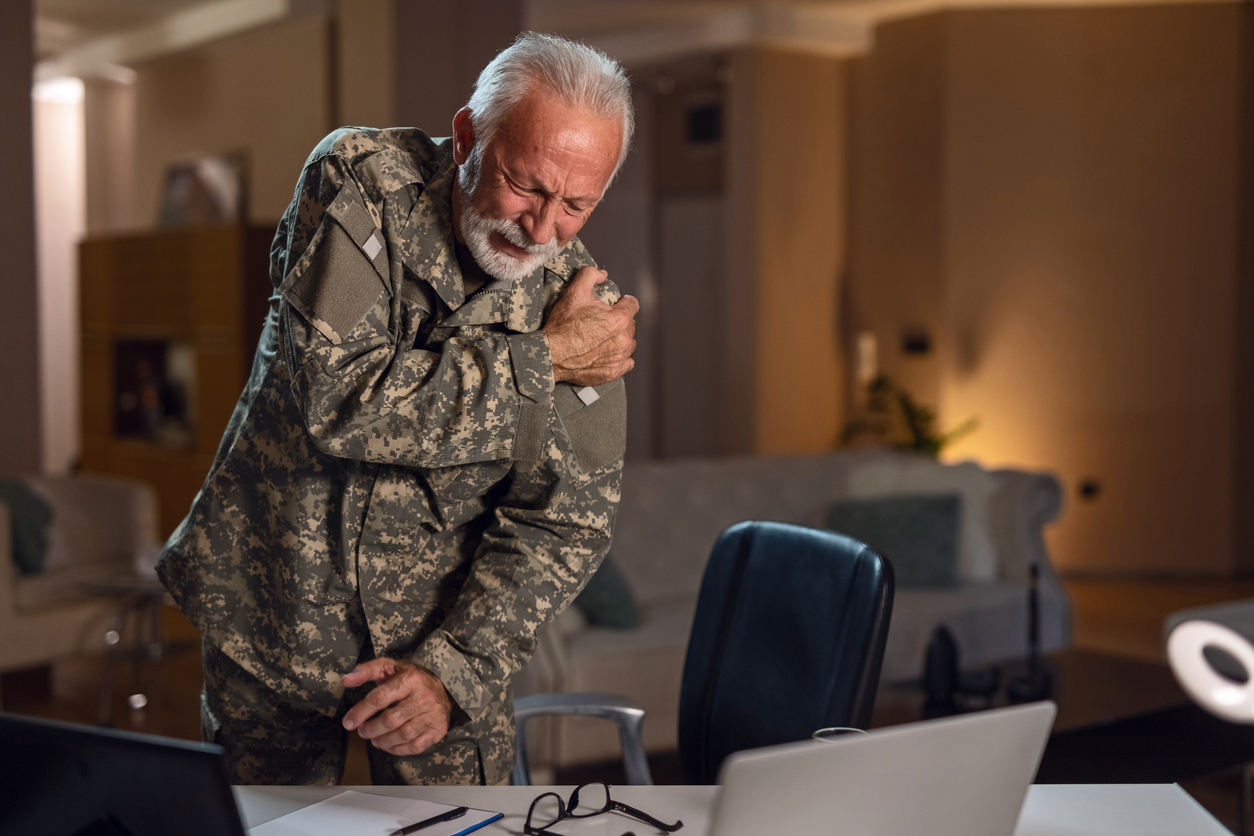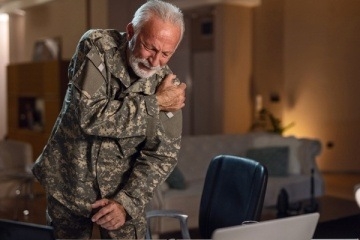
(Scottsdale, AZ)…On Veteran’s Day, we take time to pay tribute to those who risked life and limb in defense of our country. We also recognize that these individuals carry with them the mental burdens of war. However, few of us realize that military veterans are also far more likely to suffer from chronic pain than their civilian counterparts.
According to the Veteran’s Health Administration, more than 50% of veterans receiving care at their facilities experience chronic pain (i.e., pain that lasts more than 12 weeks). In fact, between 2000 and 2011, approximately 5,000,000 veterans were diagnosed with one or more musculoskeletal injuries or disorders. These include any pain related to injuries of the bones, muscles, nerves and/or connective tissues.
“At Premier Pain Institute, we see first-hand the impact that chronic pain has on our veteran patients,” says Dr. Sham Vengurlekar (“Dr. V”), founder and lead physician at PPI. “For instance, concussive bomb blasts can cause both musculoskeletal injuries and traumatic brain injuries (TBIs).”
Considering the wind blast impact of an Improvised Explosive Device (IED), that is hardly surprising. According to Scientific American, the blast wind of an IED is more than 530 kilometers per hour. By comparison, the blast wind of a Category 5 hurricane is 250 kilometers per hour.
“Because of the extensive time we have invested to patient consultation and treatment of veteran patients, we are highly qualified to treat them,” says Dr. Vengurlekar “When you better understand the cause of pain, you can better treat it – whether the pain comes from a musculoskeletal injury alone, or a combination of a musculoskeletal injury and a TBI.”
Of course, when it comes to veterans, one also cannot forget the deadly combination of Post-Traumatic Stress Disorder (PTSD) and chronic pain. In fact, a recent University of Michigan study shows that opioid deaths among veterans rose 65% between 2010 and 2016.
“Our experience with veterans has shown us that one of the best ways we can honor them is to lessen or alleviate their pain through non-invasive, non-addictive treatments,” says Dr. Vengurlekar “The last thing they need is to add addiction to the burdens they already carry.”
Two other frequently overlooked facts about veterans and pain is that musculoskeletal pain conditions are more common in female veterans than male veterans; and, young veterans suffer from more severe pain than older veterans. These include severe back pain, jaw pain, headaches and migraines, according the National Institutes of Health (with young veterans being more than 60% more likely to experience severe pain than their civilian counterparts).
Again, as we pay tribute to the men and women of our military this Veteran’s Day, we cannot forget that their sacrifices include chronic pain. So, we encourage all veterans to visit www.azpainmd.com to learn more about the many ways we treat and mange pain through minimally invasive, nonaddictive treatment methodologies. Contact us today at
















